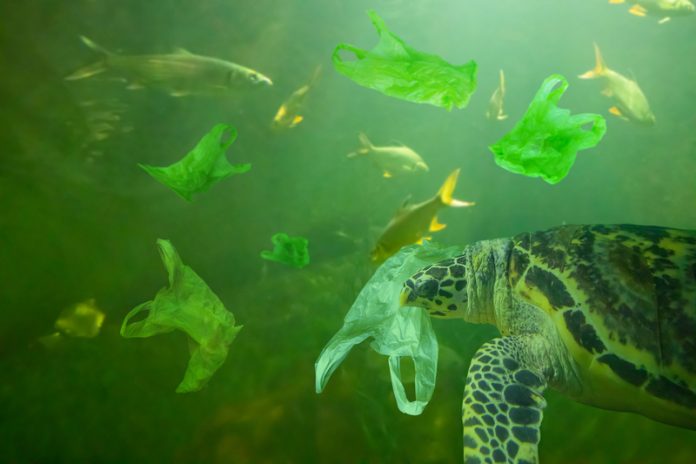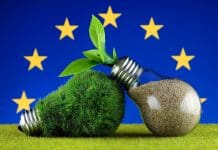Maria Spyraki MEP from the European Parliament explains the five necessary steps to reduce marine litter – Engagement, Education, Empowerment, Engineering, and Enforcement – in light of the problem of plastics ending up in the oceans of the world
The problem of plastics ending up in the oceans is probably older than the 47-year-old bottle that was washed ashore a British coast in 2018. Some plastics may take up as long as 450 years to biodegrade which practically means that this bottle, which in human years would be just entering middle-age, had some good 400 years ahead of it before it decomposes. Therefore, this problem is not only an old one but also one with a life expectancy that covers more than one of our generations. As such, we must address it with decisiveness and under a strong moral obligation to our children, and to our children’s children.
A study from the Ellen Macarthur Foundation showed that there are over 150 million tonnes of plastics in the oceans today and by rough calculations, if nothing changes, the prediction is that by 2025 the oceans will contain one tonne of plastic for every three tonnes of fish by 2025 and by 2050, plastic will outweigh fish in our oceans. This means that we must do something for the fish as well, some of which actually end up in our plates.
The European Union (EU) is not the major marine litter polluter, but this should not stop us from becoming the driving force behind policies that would alleviate this problem not only in our neighbourhood but also globally. In order to do this, we must focus our efforts on five distinct steps which I quote “the Five E’s” of tackling marine litter. Those are Engagement, Education, Empowerment, Engineering, and Enforcement.
First of all, we need to engage all involved stakeholders and take them onboard, including consumers, the industry, as well as public authorities, both at the national, as well as at the local level. Engagement breaks down into deliberating with those stakeholders and then creating sustainable and enforceable (more on that latter) policies that address the problem.
Then we come to education. It is commonplace to name education as the panacea of all evils. When it comes to making behavioural changes in the consumption of plastics, however, education has a double meaning. Through educational campaigns, we raise awareness not only on how we must use plastics as consumers, that have an increased likelihood in becoming marine litter but also on how we recycle and reuse those plastics and empower the circular economy.
Empowerment is, therefore, the third pillar of tackling marine litter. We need to empower the industry in making the paradigm shift towards what I call the circular transformation. Therefore, we must support the industry with policies and financial means in order to transform their business models towards a more sustainable one, while encouraging entrepreneurship on innovative and eco-friendly start-ups.
Entering engineering, which follows the empowerment of the industry. Through that, we must invest heavily in research and development of new products, which are bio-degradable, less-polluting, and easier to recycle. Such engineering orientation should also focus on administrative processes in order to facilitate recycling at all levels of production and consumption.
Last but not least, there must be enforcement. If all else fails or does not suffice to protect our future generations, we must be bold enough to make the decisions for the greater good. To give an example, it has been estimated that the Commission’s proposal on single-use plastics bears compliance costs for business (€2 billion) and waste management (€510 million), but it would allow consumers to save money (€6.5 billion) while saving the equivalent of 2.6 million tonnes of CO2. It is a lose-win in the short term, but a win-win in the long haul.
The Commission’s proposal to reduce the environmental impact of single-use plastics is part of a greater cause, which requires a holistic approach and strong dedication from citizens, the industry, the public sector, and policymakers. To that end, it seems very promising and balanced. However, there are no silver bullets, and surely not plastic ones, in tackling climate change and protecting the environment. But we need to take our best shot if we are to aim for a better future.

Maria Spyraki MEP
Group of the European People’s Party (Christian Democrats)
European Parliament
maria.spyraki@europarl.europa.eu











